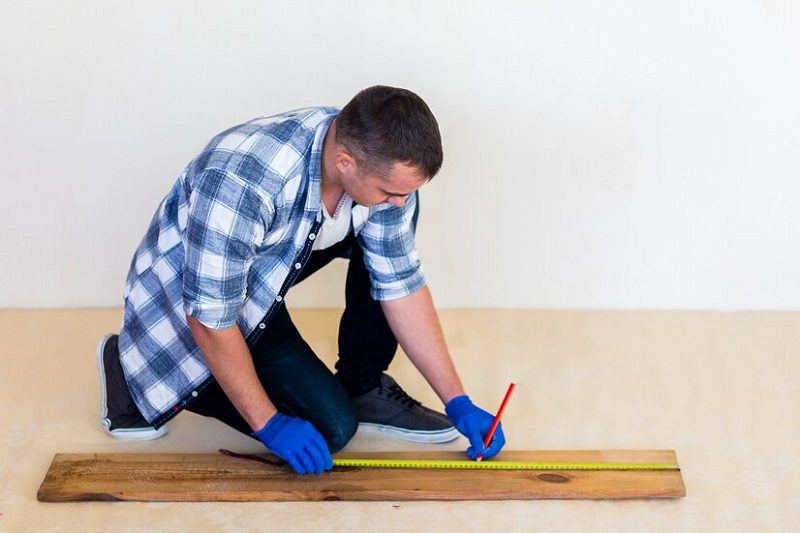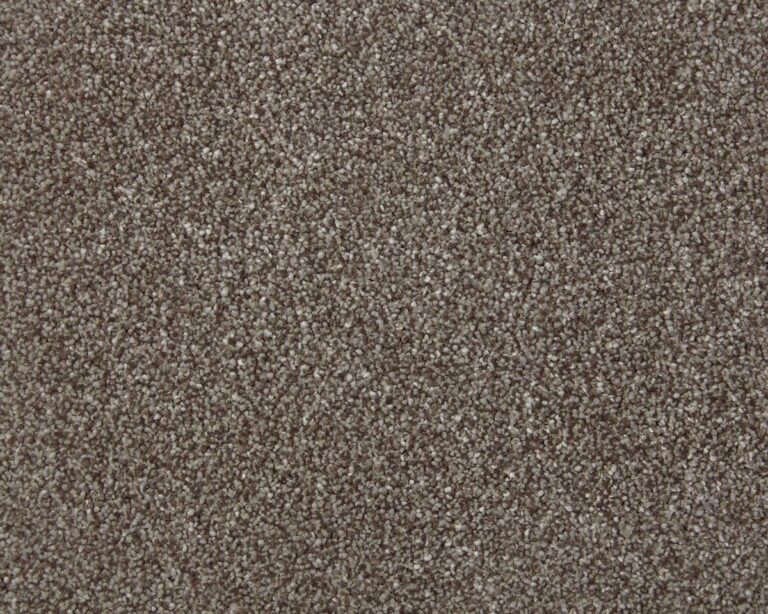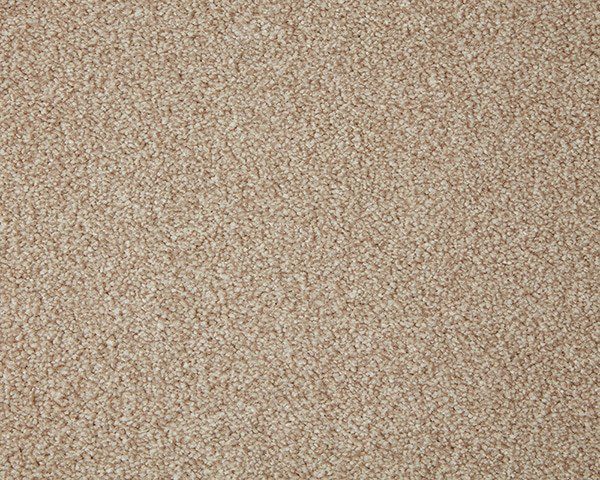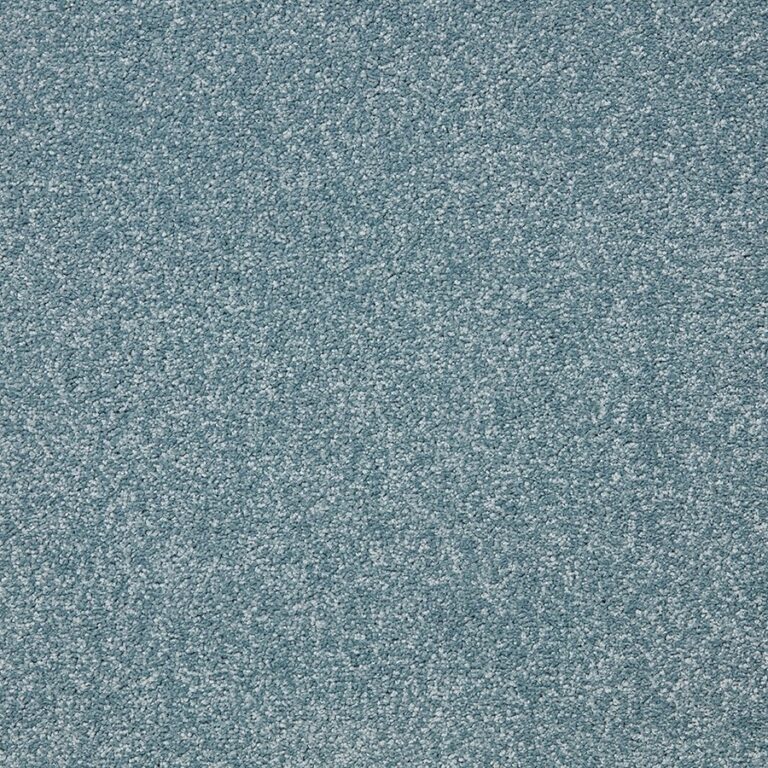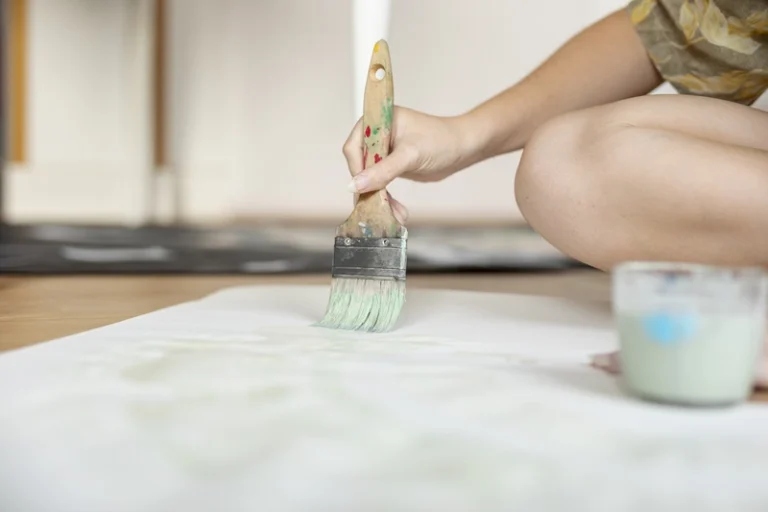Have you ever wondered, does vinyl flooring need underlay? We explore the different types of vinyl flooring and whether or not they require underlay. From floating to glue-down vinyl flooring, we discuss the benefits and disadvantages of using underlay.
Get tips on choosing the right underlay for your vinyl flooring, considering factors such as thickness, density, and moisture protection. Let’s learn more about this essential aspect of vinyl flooring installation!
What Is Vinyl Flooring?
Vinyl flooring is a versatile and durable flooring option that comes in various forms such as luxury vinyl tiles, lino, and vinyl sheets. It is a popular choice for homeowners due to its affordability, easy maintenance, and wide range of design options.
One of the key features of vinyl flooring is its durability, making it resistant to scratches and water damage, ideal for high-traffic areas like kitchens and bathrooms. The installation process for vinyl flooring is relatively straightforward, often available in peel-and-stick tiles or click-lock planks, which can be done as a DIY project or by professionals.
In terms of maintenance, vinyl flooring is easy to clean with regular sweeping and occasional mopping. It is also stain-resistant, ensuring that spills and messes can be easily wiped away without leaving permanent marks.
Homeowners can benefit from vinyl flooring’s cost-effectiveness and longevity, as it can last for many years with proper care. Different types of vinyl flooring, including rigid core vinyl and luxury vinyl planks, offer various textures, colours, and patterns to suit different interior styles.

See product: Karndean Art Select Oak Royale Storm Oak
What Is Underlay?
Underlay is a material that is installed beneath flooring to provide support, cushioning, and noise reduction. It acts as a barrier between the subfloor and the flooring material, helping to create a smooth and stable surface.
Does vinyl flooring need underlay? One of the key benefits of using underlay is its exceptional sound insulation properties. By absorbing impact noise and reducing the transmission of sound, underlay can significantly enhance the acoustics of a room, creating a quieter and more peaceful environment.
Underlay plays a crucial role in moisture protection, safeguarding the floor against potential damage caused by dampness or water infiltration. This protection not only prolongs the life of the flooring materials but also minimises the risk of mould or mildew growth.

See product: Ball & Young Cosi 8 15m2
Do All Types Of Vinyl Flooring Need Underlay?
Do you need underlay for vinyl flooring? Whilst some types of vinyl flooring, like luxury vinyl tiles, may benefit from the use of underlay for added comfort and sound insulation, other options such as lino or vinyl floors may not necessarily require underlay depending on the installation method and subfloor conditions.
Understanding the specific needs of each type of vinyl flooring is crucial when considering whether underlay is necessary. For example, in areas with high foot traffic or where noise reduction is important, luxury vinyl tiles can greatly benefit from underlay to provide cushioning and reduce sound transmission.
a. Floating Vinyl Flooring
Floating vinyl flooring, such as luxury vinyl tiles, is designed to be installed without adhesive or nails, making it a popular choice for DIY projects. While underlay can enhance the comfort and soundproofing of floating vinyl floors, it is not always a mandatory requirement.
Utilising underlay with floating vinyl flooring can offer numerous advantages. Underlay provides a cushioning effect, making the floor softer underfoot and reducing noise transmission. It helps to smooth out minor subfloor imperfections, improving the overall aesthetics of the flooring.
The installation process of underlay is relatively straightforward. It usually involves rolling out the underlay material and trimming it to fit the room’s dimensions. Once the underlay is in place, the floating vinyl tiles can be laid on top, creating a stable and comfortable floor surface.
One of the significant benefits of using underlay with floating vinyl flooring is the potential to increase the floor’s lifespan. By creating a barrier between the subfloor and the vinyl tiles, underlay can help prevent moisture damage and mould growth, and reduce the risk of wear and tear over time.
b. Glue-Down Vinyl Flooring
Glue-down vinyl flooring requires adhesive to be attached directly to the subfloor, providing a secure and stable installation. While underlayment can offer additional cushioning and noise reduction benefits, it may not always be necessary for glue-down vinyl flooring depending on the subfloor conditions.
One of the key characteristics of glue-down vinyl flooring is its durability and resistance to moisture, making it an ideal choice for areas prone to spills and high humidity. The installation process involves meticulous attention to detail, ensuring that the adhesive is evenly spread to avoid any air pockets or unevenness.
Glue-down vinyl flooring offers a seamless look with no visible transitions between planks, creating a sleek and modern aesthetic. When considering underlayment for glue-down vinyl flooring, it is essential to assess the existing subfloor conditions to determine the need for added cushioning and sound insulation.
c. Loose Lay Vinyl Flooring
Lay vinyl flooring is designed to be installed without adhesive or locking mechanisms, allowing for easy removal and replacement.
One of the key characteristics of lay vinyl flooring is its versatility in application. The installation process involves laying the planks or tiles directly on the subfloor, without the need for any adhesives, which simplifies the overall setup. This type of flooring is known for its quick and hassle-free installation, making it a popular choice for DIY enthusiasts and professionals alike.
- When considering the use of underlay with lay vinyl flooring, it’s essential to weigh the benefits it offers. Underlay can enhance cushioning, reduce noise levels, and provide additional insulation. While it may not always be mandatory for installations, underlay can significantly improve the comfort and durability of the floor surface.
d. Peel And Stick Vinyl Flooring
Peel and stick vinyl flooring offers a convenient and easy installation method by simply adhering the tiles or planks to the subfloor. While underlay can improve comfort and sound insulation, it is not always a mandatory requirement for peel-and-stick vinyl flooring.
Peel and stick vinyl flooring is known for its versatility, making it a popular choice for DIY enthusiasts looking to revamp their spaces with a cost-effective solution. This type of flooring is durable and resistant to moisture, making it ideal for areas prone to spills or high humidity levels. The installation process involves preparing the subfloor by ensuring it is clean, dry, and smooth before applying the adhesive backing of the vinyl tiles or planks.
When considering whether to use underlay with peel-and-stick vinyl flooring, it’s essential to evaluate the specific needs of the space. While underlay can provide additional cushioning underfoot and reduce noise transfer between floors in multi-level dwellings, it’s not always necessary for all installations.
The Benefits Of Using Underlay For Vinyl Flooring
Does vinyl flooring need underlay? Using luxury vinyl flooring underlay offers a range of benefits, including sound reduction, moisture protection, insulation, and creating a smooth surface for the flooring. These advantages can enhance the overall comfort, durability, and performance of vinyl floors.
a. Sound Reduction
One of the key benefits of using underlay for vinyl flooring is sound reduction. Underlay helps to absorb impact noise and reduce the transmission of sound, creating a quieter and more peaceful indoor environment.
For residential spaces, having a quiet and serene home environment is essential for relaxation and productivity. With the right underlay, footsteps are muffled, echoes are minimised, and overall noise levels are significantly reduced. This is especially crucial in apartments where neighbours live in close proximity, ensuring that daily activities do not disturb those around you. Similarly, in commercial settings such as offices or hotels, maintaining a professional and peaceful atmosphere is key to customer satisfaction and employee well-being.
b. Moisture Protection
Underlay for vinyl flooring also offers moisture protection benefits by creating a barrier between the subfloor and the vinyl material. This helps prevent moisture from seeping into the flooring, reducing the risk of mould, mildew, and water damage.
Choosing an underlayment with moisture-resistant properties is crucial for ensuring the durability and longevity of your vinyl floors. A moisture-resistant underlay effectively shields the flooring from potential water-related issues, preserving its aesthetics and structural integrity over time. This protective layer not only safeguards against moisture infiltration but also enhances the overall comfort and warmth of the flooring. By investing in high-quality underlayment with superior moisture resistance, you can significantly extend the lifespan of your vinyl floors while maintaining a healthy indoor environment.
c. Insulation
Another advantage of using underlay for vinyl flooring is insulation, which helps maintain a comfortable indoor temperature and reduces energy costs. Underlay acts as a thermal barrier, enhancing the floor’s warmth and comfort underfoot.
It not only prevents cold drafts from seeping through the floor but also ensures that heat is retained, making the room cosy during cooler months. Proper insulation is essential for energy efficiency, as it reduces the need for constant heating or cooling, thus reducing utility bills. Different types of underlayment materials such as cork, foam, or rubber offer varying degrees of insulation, allowing homeowners to choose according to their specific needs and preferences. These materials play a crucial role in enhancing the overall comfort and livability of the space.
d. Smooth Surface
Using underlay for vinyl flooring helps to create a smooth and even surface for the flooring material to rest on, minimising imperfections and enhancing the overall aesthetic appeal of the floor. It ensures a uniform and professional installation finish.
The underlay acts as a supportive layer that not only smooths out minor subfloor irregularities but also provides a stable base for the vinyl flooring to adhere to, reducing the risk of premature wear and tear. Quality underlay products like foam, cork, or rubber variants are popular choices due to their ability to absorb impact and sound, making the floor quieter and more comfortable to walk on. Underlay with moisture barrier properties helps protect the flooring from potential water damage, ensuring longevity and durability.
The Disadvantages Of Using Underlay For Vinyl Flooring
Whilst underlay offers numerous benefits, there are also drawbacks to consider when using it for vinyl flooring. These include additional costs, longer installation times, and limited benefits for certain types of vinyl flooring, depending on the requirements of the specific installation.
a. Cost
One of the main disadvantages of using underlay for vinyl flooring is the additional cost involved in purchasing and installing the underlay material. Whilst underlay can enhance the performance of the flooring, it also adds to the overall project expenses.
When opting for underlay for vinyl flooring, it’s crucial to account for not just the upfront costs of acquiring the materials, but also the expenses related to shipping and handling. These supplementary charges can significantly impact the overall budget of your flooring project.
Cost-effective alternatives such as using thinner underlay materials or opting for DIY installation can help reduce the financial burden. Comparing prices from different suppliers and looking out for discounts or bulk deals can contribute to cost savings in the long run.
b. Installation Time
Installing underlay for vinyl flooring can increase the overall installation time of the project, as it requires additional steps such as laying the underlay material, securing it properly, and then installing the vinyl flooring on top. This extended timeframe may impact project schedules and timelines.
Choosing the right underlay material is crucial to ensure the durability and longevity of the vinyl flooring.
Thicker underlays can provide better cushioning and sound insulation, but they may also add more time to the installation process. It’s essential to balance the benefits of underlay with the project deadlines and budgets.
Properly preparing the subfloor before laying the underlayment can help streamline the process. Ensuring a smooth and clean surface will prevent issues such as bumps or uneven flooring, reducing the chances of delays during installation.
c. Limited Benefits For Some Types Of Vinyl Flooring
Certain types of vinyl flooring, such as rigid core or click-lock vinyl, may not derive significant benefits from using underlay due to their inherent structure and installation requirements. In such cases, underlay may offer limited advantages or may not be recommended for specific vinyl flooring options.
For instance, rigid core vinyl flooring is designed with a sturdy, stable core that provides enhanced durability and resilience, minimising the need for additional padding underneath. The rigid construction of these planks or tiles offers sufficient support and impact resistance, making underlay redundant in many installations.
Similarly, click-lock vinyl flooring systems come with an interlocking mechanism that secures the planks or tiles tightly together, creating a uniform surface without the risk of shifting or buckling. This robust locking system eliminates the necessity for underlayment in most cases, ensuring a seamless and stable flooring application.
How To Choose The Right Underlay For Vinyl Flooring
Selecting the appropriate luxury vinyl flooring underlay involves considering factors such as the type of vinyl flooring, the thickness and density of the underlay, moisture protection features, and the specific purpose of the room where the flooring will be installed. Each of these considerations plays a crucial role in determining the optimal underlay for a successful flooring project.
a. Consider The Type Of Vinyl Flooring
When selecting underlay for vinyl flooring, it is essential to consider the specific type of vinyl material being used, such as luxury vinyl tiles, sheet vinyl, or rigid core vinyl. Different types of vinyl flooring may have varying requirements for underlay based on their installation method and structural characteristics.
For luxury vinyl tiles, it is crucial to choose underlay that offers good cushioning and sound absorption, as these tiles are often installed in residential spaces where comfort and noise reduction are key. Sheet vinyl, on the other hand, requires underlay that provides a smooth surface for proper installation without imperfections showing through. Rigid core vinyl, known for its durability and water resistance, benefits from underlay that enhances these features, such as moisture barrier options.
Ensuring the underlay is compatible with the specific vinyl material can prolong the lifespan of the flooring and enhance its performance. It is advisable to consult the manufacturer’s guidelines or seek professional advice when selecting underlay to ensure it complements the chosen vinyl flooring type, allowing for a seamless and long-lasting installation.
b. Check The Underlay’s Thickness And Density
The thickness and density of underlay are crucial factors to evaluate when choosing the right underlay for vinyl flooring. Optimal thickness and density levels can improve the comfort, insulation and durability of the flooring, ensuring a stable and long-lasting installation.
In terms of underlay for vinyl flooring, the thickness plays a key role in providing support and cushioning to the floor surface. Thicker underlay can help level out minor imperfections in the subfloor, creating a smoother overall finish. A denser underlay enhances sound absorption properties, reducing noise transmission between floors. To achieve a balance between comfort and stability, selecting an underlay with the appropriate thickness and density levels is essential for the longevity of the flooring.
c. Look For Moisture Protection Features
Moisture protection is a critical consideration when choosing underlay for vinyl flooring, as it helps safeguard the flooring material against water damage, mould, and mildew. Underlay with moisture-resistant properties can enhance the longevity and performance of vinyl floors in areas prone to moisture exposure.
One key factor in the selection of underlayment for vinyl flooring is its ability to create a moisture barrier, which is crucial to prevent water infiltration and associated issues. Moisture-resistant underlay materials often feature a barrier layer that not only protects the flooring but also provides thermal insulation and soundproofing benefits to the room. When installing vinyl flooring in areas like bathrooms, kitchens, or basements where moisture is prevalent,
- opting for underlay with vapour barrier technology can be highly advantageous.
- Consider materials such as closed-cell foam, rubber, or cork that offer excellent moisture resistance.
d. Consider The Room’s Purpose
Understanding the intended use of the room where the vinyl flooring will be installed is essential when selecting underlay. Different rooms may have varying requirements in terms of sound insulation, comfort, or moisture protection, influencing the choice of underlayment to ensure the flooring meets the specific needs of the space.
For instance, a bedroom might prioritise comfort and noise reduction, making a thick underlay with good sound insulation properties a suitable choice. On the other hand, a kitchen or bathroom would benefit from underlay with enhanced moisture resistance to protect the vinyl flooring from water damage. Tailoring the underlay based on these factors not only improves the longevity of the flooring but also enhances the overall functionality and aesthetic appeal of the room.
Do you need underlay for your flooring? Trust TEKA Flooring for this. We provide flooring accessories, including underlay from Ball & Young, a distinguished underlay company that has been providing exceptional flooring solutions with a commitment to quality and innovation.
Read also:







